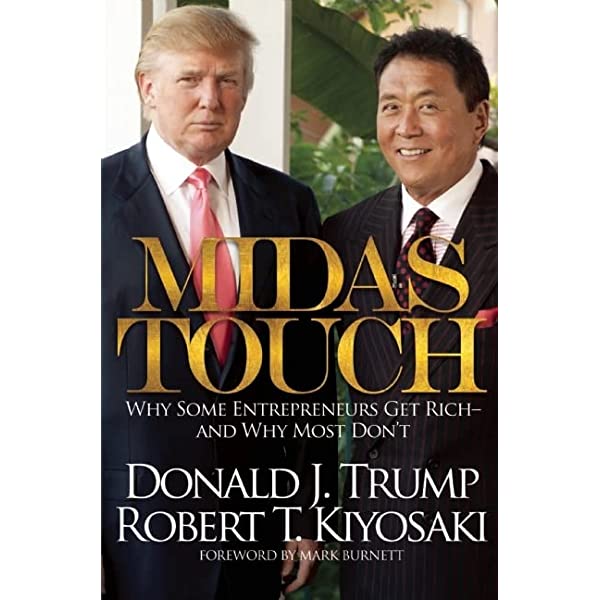BUSINESS SCHOOL
BUSINESS SCHOOL
“School is a great experience for some children. For others, school is the worst experience of their lives. Every child has a genius. Unfortunately, their genius may not be recognized by the educational system. Their genius may even be crushed. Thomas Edison, one of the great geniuses of modern times, was labeled “addled” by his first teacher. Addled means “mixed up and confused.” He never finished school, and instead became an inventor and an entrepreneur. The company he founded, known today as General Electric, creates products that have changed the world.”.
WHAT DO YOU WANT TO BE WHEN YOU GROW UP?
ROBERT VIEWS
As a Kid and as we become youth, Tradition Education has been good to us. Because it has given us the way, that we will become someday someone. As a kid, you were having many interests and it was easy to choose the Life Goals like to be a teacher, an account, lawyer, a doctor, a military and other many other professionals.
TRADITIONAL BUSINESS SCHOOL
Robert say, among of these, he had goals like to be a shifts officer, a Marine. Corps officer and a pilot. Robert say, he did not want to become a teacher. Writer or an accountant
He did not want to be a writer because he failed English twice and he dropped out of MBA programme because he did not understanding accounting
GOALS AND OBJECTIVES OF TRADITION EDUCATION EDUCATION

1. The goals of Tradition education is to prepare students and ensure they pass their examinations and hence able to acquire employment in the government or the private sectors.
2. The performance is measured in grades achieved as A’s, B+, C, D etc. The students achieved highest grades are considered as best students and those got lower grades are termed as weak students.
3. The Instructors of the traditional education are the employees qualified from the universities.
4. The students goals: The goals of the students is to seek to become high paid, well educated employee just like their Instructors.
5. The goals of the students also is to climb the corporate ladder.
MOTIVATION FOR SUCCESS IN TRADITION EDUCATION
1. In order for the students to pass their examination and score the required grades, the instructors use various motivation techniques to keep the students studying
2.This include conducting regular examinations to measure the students performance and this is done through grades scored
3.The obtained grades is used to assess the students strength and weakness.
4. Students who score high grades are considered as best students and the lowest score are termed as weak students.

“Motivation for Success”
Instructors -“If you don’t study, you will fail”. The instructors motivate the students to study by the fear of failing”!
“Once the student graduates and get a job,again,the motivation is fear,.”If you don’t do your job, you will be fired”!
By this motivation, the employee works harder out of fear, the fear of not puting food on the table, the fear of not having money to make the motgate payment.
“As a student graduate and get a job, the security blanket of the employee motivate the employee to work hard at working environment.
This is through maintaining the employee with various benefits such as pensionable employee in the government sectors which is termed as job security
This make the employee crave into the job security blanket and become trapped into the rat race of job security”
“Traditional schools had been good to us. Many of us we had achieved our childhood Professionals as we were admitted for. With tradition education, we understand what we are going to become.”
“As the child, we are Programmed to become to study the Professional as our Path”
Robert say, among of these, he had goals like to be a shifts officer, a Marine Corps officer and a pilot. Robert say, he did not want to become a teacher, Writer or a accountant.
He did not want to be a writer because he failed English twice and he dropped out of MBA programme because he did not Understanding accounting
Going to school and become somebody as an accountant, a teacher, a doctor it is not finding your life path. Most people are programmed early in life “Go to School and get a job.
According to Robert, school is about finding a job in the government or private sectors .
It is not about finding your life’s path. Many of us we don’t understand our path in Life.
We think going to school and study for a certain profession is our path
CRITICAL AGAISNT TRADITION EDUCATION-“ROBERT VIEW”
Tradition education develop students mentally
To develop into a whole human being, we need mental, physical, emotional and spiritual.
education Traditional education, develop student mentally. That is why so many students who
do well in school do not do well in real life, especially in the world of money
Most Great entrepreneurs never finish school.
This may be the reason why so many entrepreneurs never finish school. Entrepreneurs like,
Thomas Edson-(General Electrical Company), Steve Jobs-(Apple), Bill Gates-(Microsoft),
Walt Disney-(Disneyland), Mark Zuckerberg- (Facebook

Tradition education, a great environment for A-Students
Traditional education is a great environment for the smart students. For the students who is not smart in school (C-student) , it is not the environment as it is crushing spirit and trying the motivate with the emotion of fear, the fear of making mistakes, the fear of falling and the fear of not getting the
job.
Tradition school programme many smart students to be an employee in the government or private sectors. Traditional education is not the place for the person who wants to be an
entrepreneur. That is why, most entrepreneur never finish the school.
UNIVERSITY EDUCATION
LOOKING FOR PURPOSE IN LIFE OR FINDING THE PROFESSIONAL?
Higher education refers to the advanced level of education beyond the primary and secondary levels. It typically includes education provided by universities, colleges, professional schools, and other institutions that offer specialized academic and vocational programs. Higher education focuses on in-depth learning in specific fields of study, enabling individuals to develop expertise and advanced knowledge in their chosen areas.
THE PURPOSE OF HIGHER EDUCATION

1. Specialization: It allows students to focus on their areas of interest and expertise, preparing them for careers in specific industries or professions.
2. Research and Innovation: Higher education institutions are centers of research and development, contributing to the advancement of knowledge and the development of new technologies, ideas, and solutions.
3. Personal Growth: Beyond academic knowledge, higher education fosters personal development, character building, and a sense of social responsibility
.
4. Career Advancement: Higher education equips individuals with the necessary skills and qualifications to pursue higher-level positions and leadership roles in their fields.
5. Lifelong Learning: It instills a love for learning that extends beyond graduation, encouraging continuous education and personal growth throughout life.
THE OBJECTIVES OF HIGHER EDUCATION
The objectives of higher education encompass a wide range of goals that aim to fulfill various roles in the personal, academic, and societal development of individuals. These objectives include:

- Academic Excellence: One of the primary objectives of higher education is to provide rigorous and comprehensive academic programs that promote excellence in learning. Institutions strive to maintain high standards of education and ensure that students gain a deep understanding of their chosen disciplines.
2. Specialization: Higher education allows students to specialize in specific fields of study, enabling them to acquire advanced knowledge and expertise in their areas of interest. The specialization prepares individuals for specialized careers and positions in their respective industries.
3. Critical Thinking and Problem-Solving: Higher education fosters critical thinking skills, encouraging students to analyze and evaluate information critically. It cultivates problem-solving abilities that empower graduates to address complex challenges in their professional and personal lives.
4. Research and Innovation: Institutions of higher education are hubs of research and innovation. Encouraging students and faculty to engage in research contributes to advancing knowledge, technological breakthroughs, and developing solutions to real-world problems
5. Personal Development: Higher education aims to nurture holistic personal growth in students. It focuses on character building, ethical values, leadership qualities, and a sense of social responsibility, preparing individuals to be responsible and compassionate citizens.
6. Global Awareness and Cultural Understanding: Higher education encourages exposure to diverse perspectives, cultures, and ideas. Promoting global awareness and cultural understanding helps students develop a more inclusive and open-minded worldview.
7. Lifelong Learning: Instilling a love for learning that extends beyond graduation is an essential objective of higher education. Graduates are encouraged to embrace lifelong learning to adapt to changing circumstances, pursue professional development, and stay relevant in a rapidly evolving world.
8. Employment and Career Preparation: Higher education equips students with the skills and qualifications necessary to enter the workforce and pursue successful careers. It provides internships, practical experiences, and networking opportunities, enhancing graduates’ employability.
9. Social and Economic Mobility: Higher education has the potential to uplift individuals from disadvantaged backgrounds, providing opportunities for social and economic mobility. It can break barriers and open doors to better opportunities and improved quality of life.
10. Contribution to Society: A significant objective of higher education is to foster a sense of civic responsibility and encourage graduates to contribute positively to their communities. Higher education plays a crucial role in producing responsible and active citizens committed to making a difference in society.


FINDING YOUR PATH OR YOUR PROFESSIONAL…?
The Path-Is the Goal. This means, finding your path in life is your goals in life. Your path is not your profession, how much money you make, you’retittle, or your success and failures. Finding your path means finding out what you were put here on the earth to do.
Your path is your purpose of be in this earth.. Your path is your gift of your life
and the way how the gift give back to life.
CORPORATE BUSINESS SCHOOL

1. The Corporate Business School provides the sales training programs.
2. They encourage their students to practice in the real world to hit the streets and practice what is learnt.
3. Instructors:Are great sales managers and great teachers and mentors
4. The aim of training to their students is teach them the skills and studying the competitors products and strategies.
5. The employee:They are awarded based with their performance, they are paid paycheck, transport allowance, they are accommodated with good office and other motivation based with their job.
FAMILY BUSINESS SCHOOL
A family business is a commercial organization in which decision-making is influenced by multiple generations of a family, related by blood or marriage or adoption, who has both the ability to influence the vision of the business and the willingness to use this ability to pursue distinctive goals
Family Business Characteristics
-
Members: Family business management is conducted by a group of individuals who are also the members of a single family is the owner and runs the enterprise.
-
Position of members: The role and position of the family members in the business enterprise depend upon the relationship between the members.
-
Control: The family exercises control over the enterprise since the family is the major shareholder in the company.
-
Mutual Interest: The family members who hold key positions in the business are supposed to influence the business policies as determined by the mutual interest of the firm and the family.
-
Involving Multiple Generations: The family looks after the business management and operations, and thus the rein is passed from one generation to the next.
-
Mutual Trust: All family members must have mutual trust in every involved member since they have a mutual origin, the same values, business orientation and ethics.
-
Integrity and Transparency: These characteristics are built by strong moral principles and determination toward business goals and honesty in transparency in business.
.


CHARACTERISTICS OF A FAMILY BUSINESS
Members: Family business management is conducted by a group of individuals who are also the members of a single family is the owner and runs the enterprise.
- Position of members: The role and position of the family members in the business enterprise depend upon the relationship between the members..
- Control: The family exercises control over the enterprise since the family is the major shareholder in the company..
- Mutual Interest: The family members who hold key positions in the business are supposed to influence the business policies as determined by the mutual interest of the firm and the family.
- Involving Multiple Generations: The family looks after the business management and operations, and thus the rein is passed from one generation to the next…
- Integrity and Transparency: These characteristics are built by strong moral principles and determination toward business goals and honesty in transparency in business..
STREET BUSINESS SCHOOL
“Once we leave schools, most of us know that it is not so much a matter of College degrees or good grades that count. In the real world outside of the Academics, something more than just grades is required”.
1. This is the toughest Business school of all Business schools.
2. It is the horrible school, harsh teacher and tough on grades.
3. The students of this business school, they came face to face with greatest fears and depth of personal self-doubt.
4. It is the best Business school if you climb the Corporate ladder.
5. The Business school of the street is measured in dollars earned and dollar lost instead of A’s, B’s, and C grades.
6. In Business school of the street you pay everything including paperclips, travel, you pay people salary as well.
7. For most of the time, you work for free (Not to pay yourself)
8. If you get paid, you get paid last (if you get paid at all), when others you get paid first.

BUSINESS SCHOOL CONTRASTING POINTS OF VIEWS
“It is fear that keeps most people working at a job. The fear of not paying their bills, the fear of being fired, the fear of not having not enough money and the fear of not starting over.That is the price of studying the professional or trade and the working for money. Most becomes slaves of money, and then get angry with work and their employer as well “
CASE STUDY-ROBERT CLASSMATE
Robert classmate from Merchant Marine Academy realized he did not want to spend his life at sea, rather than sail for the rest of his life, he went to law School.
After graduating, three more years has become a lawyer and entering Practice in the S quadrant. He died in his early 50’s.
He has become a successful, unhappy lawyer. Like Robert, he had two professions by the time he was 26.
Although he hated being a lawyer, he continued being a lawyer because he had a family, kids, mortgage and bills to pay.
A year before he died. Robert say, I met him at a class reunion in New York, he was a bitter man.
”He say “All I do is sweep up behind rich guys like you. They pay me nothing. I hate what I do and who I do work for”.
Robert asked him “Why don’t you do something else”?” I can’t afford to stop working. My first child is entering college”. He died of a heart attack before he graduated.
He made a lot of money via his professional training, but he was emotionally angry, spiritually dead and soon his heart followed.
This is an extremely example most people do hate what they do as much as this people did. This illustrate the problem when a person is trapped in profession and unable to find their path.
This is an extremely example most people do hate what they do as much as this people did. This illustrate the problem when a person is trapped in profession and unable to find their path. This is the shortcoming of traditional education.


“Millions of people leave school only and become trapped in jobs they do not like.They know something is missing in life.
Many people are trapped financially earning just enough to survive, wanting to earn more but not knowing what to do.
Without awareness of the other quadrants, many people go back to school and look for new professions or pay raises in the E or S quadrants, unaware of the world of the B and I quadrants.”
“
ROBERT VIEWS
CASE STUDY: ROBERT VIEWS
LIFE PATH CONTRASTING POINTS OF VIEWS
“Having two dads offered me the choice of contrasting points of view. One of a rich man and one a poor man”.
I had two fathers, a rich one and a poor one. One was highly educated and intelligent. He had a Ph.D. and completed four years of undergraduate work in less than two years.
He then went on to Stanford University, the University of Chicago and North-Western University to do his advanced studies, all on full financial scholarships. The other father never finished the eighth grade.
Both men were successful in their careers, working hard all their lives. Both earned substantial incomes. Yet one always struggled financially. The other would become one of the richest men in Hawaii.
One died leaving tens of millions of dollars to his family, charities and his church. The other left bills to be paid.
Both men were strong, charismatic, and influential. Both men offered me advice, but they did not advise the same things.
Both men believed strongly in education but did not recommend the same course of study.
If I had had only one dad, I would have had to accept or reject his advice. Having two dads offered me the choice of contrasting points of view. One of a rich man and one of a poor man.
Instead of simply accepting or rejecting one or the other, I found myself thinking more, comparing, and then choosing for myself. The problem was that, the rich man was not rich yet, and the poor man was not yet poor.
Both were just starting out on their careers, and both were struggling with money and families. But they had very different points of view about money.For example, one dad would say, ’the love of money is the root of all evil. “The other said, “The lack of money is the root of all evil.”As a young boy, having two strong fathers both influencing me was difficult. I wanted to be a good son and listen, but the two fathers did not say the same things.
The contrast in their points of view, particularly about money, was so extreme that I grew curious and intrigued. I began to start thinking for long periods of time about what each was saying.
Much of my private time was spend reflecting, asking myself questions such as, “Why does he say that? “ and then asking the same question of the other dad’s statement.
It would have been much easier to simply say “Year, he’s right. I agree with that, “Or to simply reject the point of view by saying, “The old man doesn’t know what he’s talking about.
“Instead, having two dads whom I loved forced me to think and ultimately choose a way of thinking for myself.
As a process, choosing for myself turned out to be much more valuable in the long run than simply accepting or rejecting a single point of view.
One of the reasons the rich get richer, the poor get poorer, and the middle class struggle in debt is that the subject of money is taught at home, not in school
Most of us learn about money from our parents. So what can poor parents tell their child about money? They simply say, “Stay in school and study hard. “The child may graduate with excellent grades, but with a poor person’s financial programming and mindset.
Sadly, money is not taught in schools. Schools focus on scholastic and professional skills, but not on financial skills. This explains how smart bankers, doctors, and accountants who earned excellent grades may struggle financially all of their lives
Our staggering national debt is due in large part to highly educated politicians and government officials making financial decisions with little or no training in the subject of money.
Today I often wonder what will soon happen when we have millions of people who need financial and medical assistance. They will be depended upon their families or the government for financial support.
What will happen when Medicare and Social Security run out of money?
How will a nation survive if teaching children about money continues to be left to parents-most of whom will be, or already are, poor?
Because I had two influential fathers, I learned from both of them. I had to think about each dad’s advice, and in doing so, I gained valuable insight into the power and effect of one’s thoughts on one’s life.
For example, one dad has a habit of saying, “I can’t afford it,” The other dad forbade those words to be used. He insisted I ask, “How can I afford it? “One is a statement, and the other is a question. One lets you off the hook and the other forces you to think.
My soon-to-be rich dad would explain that by automatically saying the words, “I can’t afford it, “Your brain stops working. By asking the question “How can I afford it? “Your brain is put to work. He did not mean that you should buy everything you want.
He was fanatical about exercising your mind, the most powerful computer in the world. He’d say, ‘My brain gets stronger every day because I exercise it. The stronger it gets, the more money I can make. ”He believed that automatically saying, “I can’t afford it “was a sign of mental laziness.
Although both dads worked hard, I noticed that one dad had a habit of putting his brain to sleep when it comes to finances, and the other had a habit of exerting his brain
The long-term results was that one dad grew strong financially, and the other grew weaker. It is not much different from a person who goes to the gym to exercise on a regular basis versus someone who sits on the couch watching television.
Proper physical exercise increases your chances for health, and proper mental exercise increases your chances for wealth.
My two dads had opposing altitudes and that affected the way they thought. One dad thought that the rich should pay more in taxes to take care of those less fortunate. The other said, “Taxes punish those who produce and reward those who don’t produce.
One dad recommended, “Study hard so you can find a good company to work for, “The other recommended, “Study hard so you can find a good company to buy”.
One dad said, “The reason I’m not rich is because I have you kids. “The other said, “The reason I must be rich is because I have you kids”
One encouraged talking about money and businesses at the dinner table, while the other forbade the subject of money to be discussed over a meal.
One said, “When it comes to money, play it safe. Don’t take risks “The other said, “Learn to manage risk”. One believed, “Our home is our largest investment and our greatest asset.
“The other believed, “My house is a liability, and if your house is your largest investment, you’re in trouble.Both dads paid their bills on time, yet one paid his bills first while the other paid his bills last.
One dad believed in a company or government taking care of you and your needs. He was always concerned about pay raise, retirement plans, medical benefits, sick leave, vacation days, and other perks
He was impressed with two of his uncles who joined the military and earned a retirement –and- entitlement package for life after twenty years of active service. He loved the idea of medical benefits and PX privilege’s the military provided its retirees
He also loved the tenure system available through the university. The idea of job protection for life and job benefits seemed more important, at times, than the job. He would often say, “I’ve worked hard for the government, and I’m entitled to these benefits.”
The other believed in total financial self-reliance. He spoke out against the entitlement mentality and how it created weak and financially competent.
One dad struggled to save a few dollars. The other created investments. One dad taught me how to write an impressive resume so I could find a good job. The other taught me how to write strong business and financial plans so I could create jobs.
Being a product of two strong dads allowed me the luxury of observing the effects different thoughts have on one’s life. I noticed that people really so shape their lives through their thoughts
For example, my poor dad always said, “I’ll never be rich. “And that prophecy became reality.
My rich dad, on the other hand, always referred to himself as rich. He would say things like, I’m rich man, and rich people don’t do this.
“Even when he was flat broke after a major financial setback, he continued to refer to himself as a rich man. He would cover himself by saying,
“There is a difference between being poor and being broke. Broke is temporary. Poor is eternal.”
My poor dad would say, “I’m not interested in money, “or, “Money doesn’t matter. “My rich dad always said, “Money is power.”
The power of our thoughts may never be measured or appreciated, but it become obvious to me as young boy that it was important to be aware of my thoughts and how I expressed myself.
I noticed that my poor dad was poor, not because of the amount of money he earned, which was significant, but because of his thoughts and actions.
As a young boy having two fathers, I become acutely aware of being careful about which thoughts I choose to adopt as my own.Should I listen to my rich dad or to my poor dad?…
Although both men had tremendous respect for education and learning, they disagreed about what they thought was important to learn. One wanted me to study hard, earn a degree, and get a good job to earn money
He wanted me to study to become a professional, an attorney or an accountant, and to go to business school for my MBA.
The other encouraged me to study to be rich, to understand how money works, and to learn how to have it work for me. ”I don’t work fork for money! “Were words he would repeat over and over? “Money works for me!”.
At the age of nine, I decided to listen to and learn from my rich dad about money. In doing so, I chose not to listen to my poor dad, even thought he was the one with all the college degrees.
“AS YOU GROW UP, YOU BECOME EVERYTHING YOU NEVER WANTED TO BECOME”
“Adulthood is confusing because there is no signs saying “This is the way!?”. In the adulthood we knew what we didn’t want to do, but we did not know what we wanted to do.”
“”Your life, is more than going to school and become an accountant, a lawyer, a teacher etc. Many of us we never realize in early in our life”
Education is the process…..
Education is the process, you should know exactly what you will become and walk on that step.
Robert realized at the age of 26, that education is a process. He realized that, if you want to be ships officer, you should go to school that teach that field.
If you want to be a teacher, you should go the teaching college and you will become. This means, if you decide to become somebody, you should know exactly what you will become.
That is you will be an accountant, the teacher, an engineer, the businessman, the politician.
Find a different Education to know your Path.
To know your path, you need to enroll a new course “A different Education”. Robert, he wanted to follow his rich dad’s footsteps.
He signed up for real estate courses and business courses on weekends, preparing to become an entrepreneur in the B and I quadrants.
. He also signed for the personal development course just to find out who was just real was.
He never know what he will going to learn in the personal development, but he knew was that it was the time to take courses to find out about him.
INVESTMENT STRATEGIES CONTRASTING POINTS OF VIEWS
CASE STUDY: THE STORY OF BILL AND EDDI
“Once upon a time there was this quaint little village. It was a great place to live except for one problem. The village had no water unless it rained.
To solve this problem once and for all, the village elders asked contractors to submit bids to deliver water to the village on a daily basis.
Two people volunteered to take on the task, and the elders awarded the contract to both of them. They felt that a little competition would keep prices low and ensure a backup supply of water.
The first person who won the contract, Edi, immediately ran out, bought two galvanized steel buckets and began running back and forth to the lake which was a mile away
He immediately began making money as he labored morning to dusk, hauling water from the lake with his two buckets. He would empty them into the large concrete holding tank the village had built.
Each morning he had to get up before the rest of the village awake to make sure there was enough water for the people. It was hard work, but he was very happy to be making money and for having one of the two exclusive contracts for the business.
The second winning contractors Bill, disappeared for a while, he wasn’t seen for months, which made Edi very happy, since he had no competition.
“Instead of buying two buckets to compete with Edi, Bill wrote a business plan, created a corporation found four investors, employed a president to do the work, and returned six months later, with a construction crew.
Within a year, his team had built a large-volume stainless-steel pipeline which connected the village to the lake
“At the grant-opening celebration, Bill announced that, his water was cleaner than Edi’s water. Bill knew that the villagers had complained about the waters lack of cleanness.
Bill also announced that he could supply the village with water 24 hours a day, 7 days a weekend could only deliver water on week days because he didn’t want to work on weekends
Then Bills announced that he would charge 75% less than Edi for this higher quality more reliable water. The villagers cheered and immediately ran for the faucet at the end of the Bills pipeline.
In order to compete Edi immediately lowered his rates 75 percent, two more buckets, added covers to his buckets and began hauling four each trip.
In order to provide better service, he hired his two sons to give him a hand on the night shift and on weekends. When his boys went off to college, he said to them “Hurry back because someday this business belong to you”.
For some reason, his two sons never returned. Eventually, Edi had employees and union problems. The union demanded higher wages and better benefits and wanted its members to only haul one bucket at a time
“Meanwhile Bill realized that if this village needed water, then other villages must need water, then he wrote his business plan and went off to sell his high speed, high volume low-cost, clean water delivery system to villages throughout the world.
He only makes a penny per bucket of water every day whether he work or not, billions of people consume billions of buckets of water, and all that money pours into his bank account. Bill developed a pipeline to deliver money to himself, as well as water to the villages.
He only makes a penny per bucket of water every day whether he work or not, billions of people consume billions of buckets of water, and all that money pours into his bank account.
“Bill lived happily ever after. Edi worked had for the rest of his life and had financial problems forever after.
CONCLUSSION.
Understanding well your path you may want to make a change in how you earn your income and maybe you may happen to stay just where you are. We should remember that as we grow order and gain different experiences our interests change. We have noticed that many young people right out of school are often happy to get a job. But after a couple of years a few of them decide they are not interested in climbing the corporate ladder, or they lose interest in their chosen field. These changes of age and experience, often cause to search for new avenues of growth, challenges, financial reward and personal happiness.
“Your path is your goal in life, finding out to know your Path of life is to find your purpose of being in this world”
Behind the word mountains, far from the countries Vokalia and Consonantia, there live the blind texts they live
